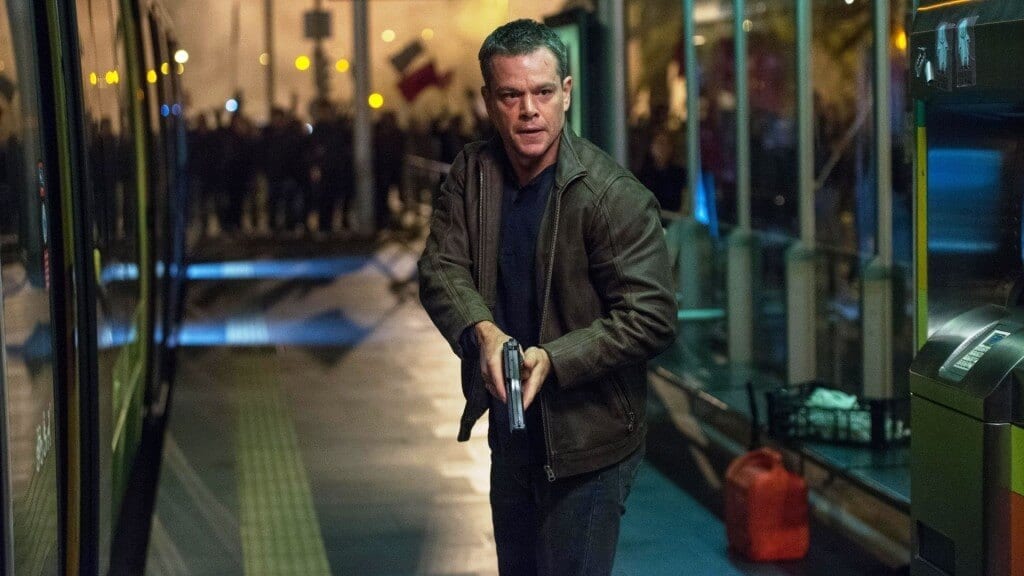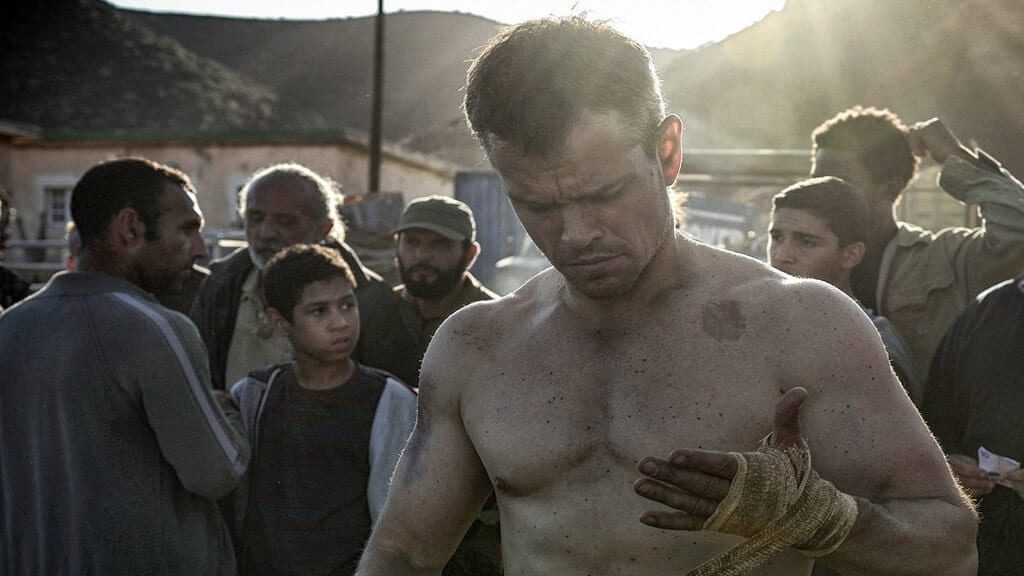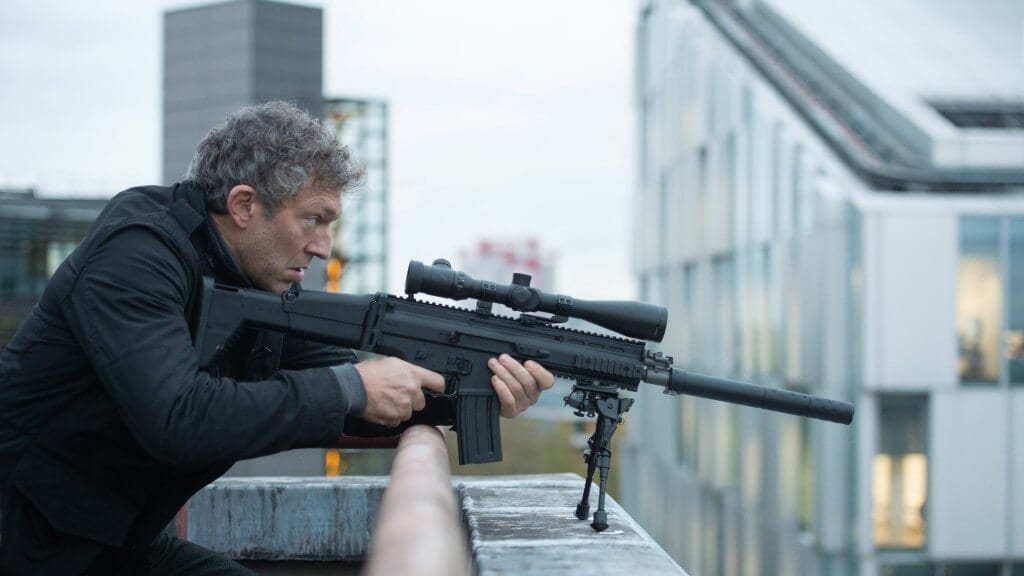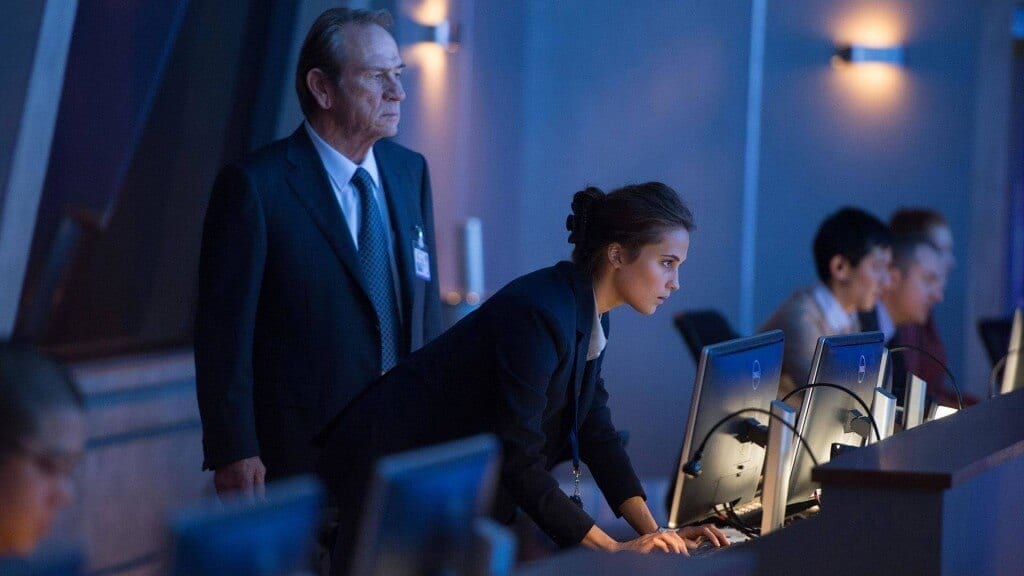Bourne Again
We’re in a film era where franchises reign, and one of the results of that is a large number of sequels flooding theaters. Like with everything else, the quality of sequels varies wildly, and it’s often hard to predict which ones will connect with audiences. I’ve surely been befuddled by which ones catch on and which are lambasted. I’ve written about what works and doesn’t before, but there is one sequel released in 2016 that I think was unjustly maligned, and I want my last article of the year to be defending this great movie.
Jason Bourne was a long time coming. After a nine-year absence (not counting the Bourneless Bourne movie, The Bourne Legacy), the franchise finally returned to screens with its hugely popular star/character combo, Matt Damon as amnesiac assassin Jason Bourne, and with the director of the second two films in the series, Paul Greengrass (for better or worse; I love these movies, but I despise shaky cam). Coming with them were legendary Tommy Lee Jones, it-girl-of-the-moment Alicia Vikander, and Vincent Cassel, a born villain playing a Bourne villain. It couldn’t miss, right?
Well, it did. While making a profit worldwide, Jason Bourne underperformed domestically and is the least successful of the series when factoring in production costs (not counting Legacy), and on par with Identity worldwide. The box office can be explained by a number of factors; an interesting notion I read months back – in an article I can, sadly, no longer find so I can link to it – suggested that if Jason Bourne had waited another couple of weeks and opened after Suicide Squad, both it and the also terrific-yet-money-losing Star Trek Beyond would’ve done much better for themselves. My bigger concern is the critical and fan reaction to the film. While Star Trek Beyond bombed much bigger than Bourne did, it’s generally well-regarded by those who’ve seen it. Jason Bourne, on the other hand, is considered a disappointment, the worst in the series (again, not counting Legacy) and not what fans or critics wanted.
That makes me sad, because I think Jason Bourne is an amazing sequel, especially for one that is restarting the franchise after a long absence. It takes both the series and the character in interesting new directions and changes the perspective on the events of the first three films, particularly Bourne’s actions, without cheapening or retconning them. I’m confused as to why people thought it was too similar to the first three (all of which were much more similar to each other than Jason Bourne is to any of them); while it feels like a part of this series, it’s something new, and it acts as a bridge between that first set and future movies that can be even more distinct.
*Spoilers for the entire series, except The Bourne Legacy, which I haven’t seen*

At the end of The Bourne Ultimatum, Jason Bourne got his memories back. It felt like the definitive end to his story, as he shed his amnesia and finally got all the answers he needed while sending the corrupt spymasters who’d been hunting him down to prison. It’s a triumphant end to his saga and wrapped everything up nicely. It’s difficult to make a further chapter in the story worthwhile after that, but Jason Bourne manages it by questioning what Bourne’s suddenly remembering his old life would do to him. How would he square his old memories with the man he’d become since getting pulled out of the Mediterranean Sea?
Not well, it seems. The first three movies were all about what these evil CIA bureaucrats had done to poor David Webb, but Webb had to have signed up with the black ops program for a reason. That reason was patriotism; Webb wanted to protect his country as best he could, and when he joined Treadstone and became Jason Bourne, it was with those best of intentions. Losing his memory made Bourne a cipher; he didn’t know what he believed in anymore and had to create a new identity from scratch. When he saw the morally shaky nature of the black ops programs, he exposed them. With his memories returned, however, he’s no longer sure he did the right thing; in bringing Treadstone and Blackbriar into the light of day, he took a blowtorch to everything he once believed in, and the world may be a more dangerous place because of it.
That’s why, in his second bareknuckle boxing match, Bourne lets his opponent beat on him. We all know he could annihilate that guy without burning a calorie, but Bourne allows the beating because he thinks he deserves it. He hates himself for what he’s done, and this time it’s not because he killed some terrorist with a high-powered rifle, but because he allowed more of those terrorists to operate unopposed, killing the innocent and endangering his country. He never made any real life for himself because he no longer believes he deserves one. Bourne is in a self-imposed purgatory, working off his sins with blood and self-loathing.

And it’s not just average citizens who are paying for his newfound idealism; other men just like him, who signed up to do good, are now in danger. The Asset (Vincent Cassel), the assassin who becomes Bourne’s foil, is the face of this. He was a guy like Bourne, killing evil men to protect the innocent, but when Bourne blew the lid off the black ops program, he was exposed and captured by the enemy. For two years he was tortured, until finally the Agency was able to facilitate his escape. Many others weren’t as lucky, however. Bourne’s fellow soldiers in the war on terror suffered and died because he was angry at his former bosses’ secrecy. What’s more, the Asset escaped death only because of those same secretive bosses; he owes his life to the people who were, in the first three films, the bad guys, whereas lovable hero Jason Bourne got him tortured and almost killed.
CIA Director Robert Dewey (Tommy Lee Jones), the other main heavy, isn’t quite as personally involved in killing Bourne as the Asset is, but he too sees Bourne’s actions as treason, and the movie argues that he has a point. He’s been scrambling to clean up the mess Bourne made, saving guys like the Asset where he could and, likely, lamenting the ones who were lost forever. These two are much more complex than Conklin (Chris Cooper) or Abbott (Brian Cox) from the earlier films, because they’re not corrupt; they believe Bourne is the villain. (Noah Vosen [David Strathairn] from Ultimatum wasn’t as corrupt as Abbott and Conklin, but in terms of how the film portrayed him, there wasn’t much gray to be seen, and he ruthlessly killed anyone who got in his way.) What was once a black-and-white struggle between clearly defined good and evil is now a much grayer affair, where there may be no good guys.
But Dewey and the Asset aren’t squeaky clean themselves. As much as Bourne was a willing participant in Treadstone, he was also manipulated by Dewey, with the Asset being the triggerman (or button man, as the case may be) who killed his father (Gregg Henry) and blamed it on terrorists. As much as they have reason to hate Bourne, Bourne is just in hating them right back. Again, though, it isn’t as simple as evil men doing evil things; just like his son would one day, Richard Webb was planning to expose the black ops program – a program he not only believed in but helped create – in order to keep his son away from it. Richard, noble intentions notwithstanding, was committing treason, and Dewey saw him as a threat that needed to be removed.

Further, in their zeal to eliminate Bourne, Dewey and the Asset kill a whole lot of fellow CIA operatives. These are guys like Bourne and the Asset, doing their job to keep the world safe for our children, and yet Dewey orders their deaths as one would sip a coffee, and the Asset executes them without blinking. They have now become the very things they accuse Bourne of being, only they’re much worse because they’re doing it intentionally, whereas Bourne didn’t consider the consequences of his actions.
The point made here is something that’s been pretty consistent throughout the series: corruption is directly proportional to one’s proximity to power. Bourne and the men like him are just grunts following orders, ignorant of any malfeasance going on above their station; the Treadstone/Blackbriar assassins Bourne tangles with throughout the first three films are doing their jobs, and while Bourne has to fight them to the death to stay alive he feels guilty for killing men just like himself (and the Professor’s [Clive Owen] dying words in Identity, as well Paz’s [Edgar Ramírez] change of heart in Ultimatum, indicate that they are similarly conflicted). The analysts are much the same, typing away at computers because it’s what they do; Nicky (Julia Stiles) looks for Bourne at the behest of her superiors, but she doesn’t really know what they’re up to and only wants Bourne dead out of fear for her own life. Pamela Landy (Joan Allen) is higher up the food chain, but still not in charge of anything until she gets special clearance in Supremacy (wherein Abbott tells her she’s meddling in things “above [her] paygrade”). The people who actually run things, however, the Abbotts and Conklins and Vosens, even the CIA director in Ultimatum (Scott Glenn), are all corrupt and/or merciless killers.
Jason Bourne shows the corruption power brings more clearly than any of the other movies. Heather Lee (Alicia Vikander) is in a similar position to Pamela Landy, getting herself higher clearance to try to deal with Bourne in her own way. For much of the movie, she’s pretty much a good guy; she has ambitions, but she seems to honestly want to help Bourne because she thinks it’s the right thing to do. When all is said and done, however, she finds herself in control of the CIA and immediately throws Bourne under the bus; she wants to bring him back into the Agency, but if he refuses she makes it clear that she’ll order his death. This is in stark contrast to Pamela Landy, who, like Bourne, saw the corruption at the top and was appalled, joining him on his quest to expose her superiors. The Asset, too, becomes murderous toward his colleagues only when he begins working directly for Dewey. Even when people have their hearts in the right place, power corrupts and no one is above losing their soul.

This murkiness is present in the other characters as well. Aaron Kalloor (Riz Ahmed), the tech mogul who creates software capable of spying on anyone using it, is in a similar position to Bourne. He agreed to help Dewey use the information he gathered to monitor potential threats, but now he’s having second thoughts and wants to back out. He’s become idealistic and wants to protect the populace from an overreaching government agency, but from Dewey’s perspective he’s putting those same people in greater danger by curbing the CIA’s ability to prevent terrorist attacks. Like Bourne, Dewey sees him as a traitor and has no qualms about ordering his assassination; Bourne’s saving Kalloor is a manifestation of his finally forgiving himself for his own sins. (Compare this to Supremacy, where Bourne sought forgiveness from others while refusing to forgive himself; character growth!)
Christian Dessault (Vinzenz Kiefer), the hacker who’s “worse than Snowden,” is someone with whom the Bourne of the first three films would have readily joined forces. He, like Bourne, also exposed government secrets and made a lot of very powerful people angry. He does some good; without him and Nicky digging into the government’s computer networks, Bourne would never have found out about his father. However, he also does a lot of harm, and Nicky is one of likely many who died because of him. When he gets the drop on Bourne with a weight, he manages to hurt Bourne, representing the way Bourne hurt the other operatives through exposing the black ops programs, and Bourne giving Dessault a lethal beatdown is him exorcising his own demons as he had in the bareknuckle boxing matches; this time, however, Bourne has an outlet for his own rage, someone who, like him, deserves it, so it’s more cathartic for him.
It’s that catharsis, both in eliminating a danger to his country in Dessault and in forgiving a man like Kalloor, that allows Bourne to evolve even further. The former killer who, in Supremacy and Ultimatum, fought not to kill, now realizes that some people need killing, and when he goes after the Asset at the end, it’s with a vengeance. He wants revenge for his father, he wants revenge for Nicky, and he just wants to kill an evil man. Bourne’s past kills were handed out with a sadness at the cycle of violence repeating itself – even when he gets the man who shot Marie (Franka Potente) in Supremacy – but this time Bourne takes great satisfaction in snapping his adversary’s neck. Even the placement of the fight bears this out; usually the big hand-to-hand combat scene with a rival assassin comes about halfway through the movie, but in Jason Bourne it’s the big finale, because Bourne had to work his way up to being able to kill this punk with impunity.

That fight is a great example of what this movie does every step of the way: takes the familiar and makes it new. The big car chase, for example, is a staple of the franchise, but this one is different from the ones that have come before. Now the villain is driving a big SWAT truck, barreling through cars on the Vegas Strip like an invincible juggernaut as Bourne frantically hunts him down. It’s a merging of Bourne’s past and present desires; he wants to kill the Asset for personal reasons, but he also wants to stop him from hurting any more innocent people – the same ones David Webb assumed the Bourne identity to protect all those years ago. The scene where Bourne has to make contact with an informant while evading the CIA agents waiting to catch him is also here, but the twist this time is that Bourne isn’t the one taking them out; the Asset is, and he does it with a bullet to their heads instead of Bourne’s patented martial arts moves that’ll leave them bruised and concussed, but alive. This is the visual evidence that Bourne no longer wants to hurt these people, but the Asset is so consumed with hate that he no longer cares about them.
With all of this done, Bourne is ready for something completely different next time. He wants to fight the dangers to his country, so he could be sent after some terrorist group or a hostile foreign government. At the same time, he knows not to trust Heather Lee or the higher ups, so the hallmarks of the series need not be completely abandoned. The next movie can go almost anywhere, and that’s exciting.
Why people didn’t connect with Jason Bourne I don’t know, particularly in light of how different it is, which they claim to have wanted. (It’s particularly maddening to me because people as a whole recently adored The Force Awakens, a sequel that, in terms of following its predecessor’s blueprint, made The Hangover Part II look like Halloween III) Hopefully, like The Bourne Identity, the latest installment finds a new lease on life on DVD/Blu Ray and secures another bunch of sequels. (I think it was profitable enough already, but I want to be sure, and it deserves to be recognized somewhere.) I want a new Bourne movie every few years, and Jason Bourne has given me all the confidence in the world that they can be great.







